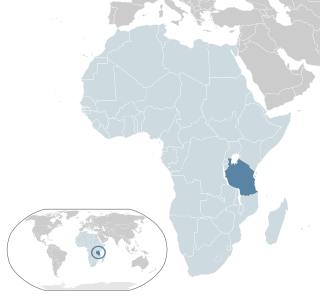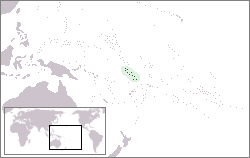Related Research Articles

The Buggery Act 1533, formally An Acte for the punishment of the vice of Buggerie, was an Act of the Parliament of England that was passed during the reign of Henry VIII.

The United States has inherited sodomy laws which constitutionally outlawed a variety of sexual acts that are deemed to be illegal, illicit, unlawful, unnatural and/or immoral from the colonial-era based laws in the 17th century. While they often targeted sexual acts between persons of the same sex, many sodomy-related statutes employed definitions broad enough to outlaw certain sexual acts between persons of different sexes, in some cases even including acts between married persons.

The Criminal Law Amendment Act 1885, or "An Act to make further provision for the Protection of Women and Girls, the suppression of brothels, and other purposes," was an Act of the Parliament of the United Kingdom, the latest in a 25-year series of legislation in the United Kingdom of Great Britain and Ireland beginning with the Offences against the Person Act 1861. It raised the age of consent from 13 years of age to 16 years of age and delineated the penalties for sexual offences against women and minors. It also strengthened existing legislation against prostitution and homosexuality. This act was also notable for the circumstances of its passage in Parliament.

The Sexual Offences Act 1967 is an act of Parliament in the United Kingdom. It legalised homosexual acts in England and Wales, on the condition that they were consensual, in private and between two men who had attained the age of 21. The law was extended to Scotland by the Criminal Justice (Scotland) Act 1980 and to Northern Ireland by the Homosexual Offences Order 1982.
Section 11 of the Criminal Law Amendment Act 1885, commonly known as the Labouchere Amendment, made "gross indecency" a crime in the United Kingdom. In practice, the law was used broadly to prosecute male homosexuals where actual sodomy could not be proven. The penalty of life imprisonment for sodomy was also so harsh that successful prosecutions were rare. The new law was much more enforceable. Section 11 was repealed and re-enacted by section 13 of the Sexual Offences Act 1956, which in turn was repealed by the Sexual Offences Act 1967, which partially decriminalised male homosexual behaviour.
The ages of consent for sexual activity vary from age 15 to 18 across Australia, New Zealand and other parts of Oceania. The specific activity and the gender of its participants is also addressed by the law. The minimum age is the age at or above which an individual can engage in unfettered sexual relations with another person of minimum age. Close in age exceptions may exist and are noted where applicable. In Vanuatu the homosexual age of consent is set higher at 18, while the heterosexual age of consent is 15. Same sex sexual activity is illegal at any age for males in Papua New Guinea, Kiribati, Samoa, Niue, Tonga and Tuvalu; it is outlawed for both men and women in the Solomon Islands. In all other places the age of consent is independent of sexual orientation or gender.
The ages of consent vary by jurisdiction across Europe. The ages of consent – hereby meaning the age from which one is deemed able to consent to having sex with anyone else of consenting age or above – are between 14 and 18. The vast majority of countries set their ages in the range of 14 to 16; only four countries, Cyprus (17), Ireland (17), Turkey (18), and the Vatican City (18), set an age of consent higher than 16.

The age of consent in Africa for sexual activity varies by jurisdiction across the continent, codified in laws which may also stipulate the specific activities that are permitted or the gender of participants for different ages. Other variables may exist, such as close-in-age exemptions.
George Everett Klippert was the last person in Canada to be arrested, charged, prosecuted, convicted, and imprisoned for gross indecency before the decriminalization of homosexual acts in 1969; decriminalization was a direct result of the Klippert case.

Lesbian, gay, bisexual, and transgender (LGBT) people in Tanzania face severe challenges not experienced by non-LGBT residents. Homosexuality in Tanzania is a socially taboo topic, and same-sex sexual acts are criminal offences, punishable with life imprisonment. The law also criminalises heterosexuals who engage in oral sex and anal intercourse.

Lesbian, gay, bisexual, and transgender (LGBT) people in the Gambia face significant challenges not experienced by non-LGBT residents. Same-sex sexual activity is illegal for both men and women in the Gambia. Criminalisation commenced under the colonial rule of the British. The 1933 Criminal Code provides penalties of prison terms of up to fourteen years. In 2014, the country amended its code to impose even harsher penalties of life imprisonment for "aggravated" cases. The gender expression of transgender individuals is also legally restricted in the country. While the United States Department of State reports that the laws against homosexual activity are not "actively enforced", arrests have occurred; the NGO Human Rights Watch, reports regular organised actions by law enforcement against persons suspected of homosexuality and gender non-conformity.

Lesbian, gay, bisexual, and transgender (LGBT) people in Dominica face legal challenges not experienced by non-LGBT residents. Homosexuality has been legal since 2024, when the High Court struck down the country's colonial-era sodomy law. Dominica provides no recognition to same-sex unions, whether in the form of marriage or civil unions, and no law prohibits discrimination on the basis of sexual orientation or gender identity.

Lesbian, gay, bisexual, and transgender (LGBT) people in Zambia face challenges not experienced by non-LGBT residents. Same-sex sexual activity is illegal for both men and women in Zambia. Formerly a colony of the British Empire, Zambia inherited the laws and legal system of its colonial occupiers upon independence in 1964. Laws concerning homosexuality have largely remained unchanged since then, and homosexuality is covered by sodomy laws that also proscribe bestiality. Social attitudes toward LGBT people are mostly negative and coloured by perceptions that homosexuality is immoral and a form of insanity. However, in recent years, younger generations are beginning to show positive and open minded attitudes towards their LGBT peers.

A sodomy law is a law that defines certain sexual acts as crimes. The precise sexual acts meant by the term sodomy are rarely spelled out in the law, but are typically understood and defined by many courts and jurisdictions to include any or all forms of sexual acts that are deemed to be "illegal", "illicit", "unlawful", "unnatural" and/or "immoral". Sodomy typically includes anal sex, oral sex, manual sex, and bestiality. In practice, sodomy laws have rarely been enforced to target against sexual activities between individuals of the opposite sex, and have mostly been used to target against sexual activities between individuals of the same sex.

In the United States, each state and territory sets the age of consent either by statute or the common law applies, and there are several federal statutes related to protecting minors from sexual predators. Depending on the jurisdiction, the legal age of consent is between 16 and 18. In some places, civil and criminal laws within the same state conflict with each other.

Lesbian, gay, bisexual, and transgender (LGBT) people in Tuvalu face legal difficulties not experienced by non-LGBT residents. Sections 153, 154 and 155 of the Penal Code outlaw male homosexual intercourse with a penalty of up to 14 years in prison, but the law is not enforced. Employment discrimination on the basis of sexual orientation has been banned since 2017. Since 2023, the Constitution of Tuvalu has banned same-sex marriage.

Geldenhuys v National Director of Public Prosecutions and Others is a decision of the Constitutional Court of South Africa which struck down as unconstitutional a law which set the age of consent at 19 for homosexual sex but only 16 for heterosexual sex.

Lesbian, gay, bisexual, and transgender (LGBT) persons in Northern Nigeria face unique legal and social challenges not experienced by non-LGBT residents. Federal law prohibits all forms of homosexual activities and prescribes up to 14 years imprisonment for those found culpable. While the Maliki form of Shari'a law applied in 12 states have lesser penalty for unmarried persons, it prescribes the death penalty for married individuals.

The "Alan Turing law" is an informal term for the law in the United Kingdom, contained in the Policing and Crime Act 2017, which serves as an amnesty law to pardon men who were cautioned or convicted under historical legislation that outlawed homosexual acts. The provision is named after Alan Turing, the World War II codebreaker and computing pioneer, who was convicted of gross indecency in 1952. Turing received a royal pardon posthumously in 2013. The law applies in England and Wales.
Article 365 of the Sri Lankan Penal Code criminalizes "carnal intercourse against the order of nature" and provides for a penalty of up to ten years in prison.
References
- ↑ "Acts of Gross Indecency". www.constancebackhouse.ca.
- 1 2 Craig, Jon (19 October 2016). "Men to be pardoned for abolished sex offences". Sky News. Retrieved September 7, 2017.
- ↑
- Donald W. McLeod: Lesbian and gay liberation in Canada: a selected annotated chronology, 1964-1975 : Toronto: ECW Press/Homewood Books, 1996: ISBN 1-55022-273-2.
- ↑ "Acts of gross indecency". Archived from the original on 2014-02-28.
- ↑ "Kenya Penal Code, Sections 162, 163, and 165" (PDF). Archived from the original (PDF) on 2014-06-06. Retrieved 2018-01-04.
- ↑ "Civil rights group launches challenge to Kenya's strict anti-gay laws". The Independent. 16 April 2016.
- ↑ "Gross indecency; between male persons". Legislature.MI.gov. Retrieved November 13, 2017.
- ↑ "Gross indecency; female persons". Legislature.MI.gov. Retrieved November 13, 2017.
- ↑ "Gross indecency; between male and female persons". Legislature.MI.gov. Retrieved November 13, 2017.
- ↑ "Lexis Advance - Online Legal Research -LexisNexis". litigation-essentials.lexisnexis.com. Archived from the original on 2017-08-23. Retrieved 2018-07-23.
- ↑ "Michigan Legislature - Section 750.335a". www.legislature.mi.gov.
- ↑ "Michigan Legislature - 328-1931-LXXVI". www.legislature.mi.gov.
- ↑ "Michigan Legislature - 328-1931-LXVII". www.legislature.mi.gov.
- ↑ Serra, Rudy (25 June 2009). "Viewpoint: Keep crying, Corvino - Michigan remains far behind". PrideSource.com. Archived from the original on 2017-11-14. Retrieved November 13, 2017.